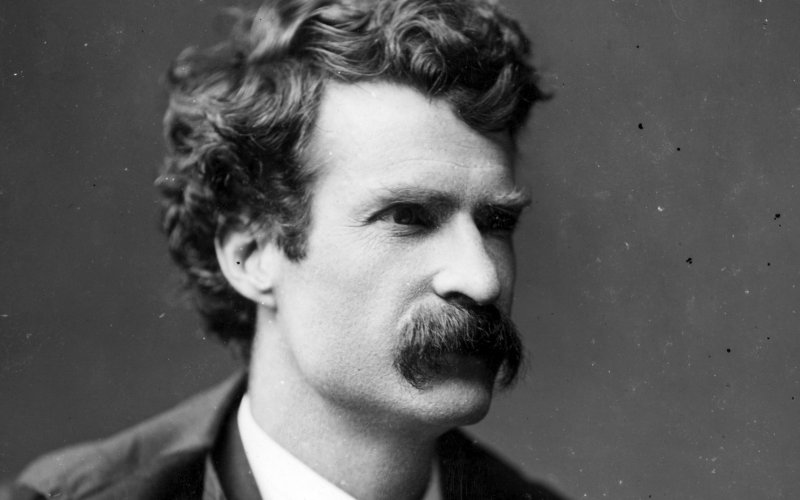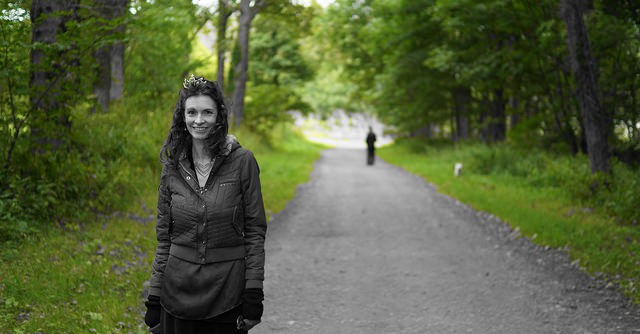
Mark Twain came to San Francisco to “be a butterfly.”
I was on the tail end of two homeless years when I tattooed Mark Twain across the inside of my arm. I temporarily became another casualty of capitalism, made well-aware of my corporate worth and relegated to the service industry where I could only earn $2.13 an hour slinging beer. Though the economy no longer recognized my intrinsic value, I knuckled down and worked smarter than ever before. I would clock in as many hours as I could get and spend every other waking moment scratching my way out of hell with my pencil. It was the dawn of my prolific Thirties.
I wrote my way home to San Francisco, the same city where Samuel Clements spent two painfully broke years subsequently becoming Mark Twain. “All things that go to make life happy, are present in San Francisco to-day, just as they are all days in the year,” Mark Twain wrote shortly after moving to the city in May 1864. While I thankfully have stabilized my way to the coveted middle-class bracket, there are approximately 7,350 homeless souls in San Francisco and another estimated 633,782 across this willfully-blind nation of ours. During my rooftop-challenged months, I was fortunate enough to have a carousel of hospitable couches to sleep on and only had to spend a couple of cold nights in my mini-van.
As I read Ben Tarnoff’s new book, The Bohemians: Mark Twain and the San Francisco Writers Who Reinvented American Literature, I am reminded of how the dark nights illuminated the world to me and forever altered my empathic perspective. Mark Twain circulated city hotels until his pockets were emptied, scraping together a meager living as a freelance writer during San Francisco’s post-civil war literary boom, then later chronicling his Bohemian mis-adventures in his book Roughing It. As Tarnoff details, the Bohemians “shared a single purpose: to wage all-out war on mediocrity, materialism, and the middlebrow.” In America, “Bohemian” was once referred to a working writer. 19th Century San Francisco sustained more professional scribblers in proportion to its total population than any other American city, and gave writers plenty of opportunities to ply their trade. San Francisco provides a steady stream of suitable material for any artist. Creativity saved my sanity and now I am beginning to understand the transformative power of storytelling. In moments of despair, head in hand, I see the words of Mark Twain eternally imprinted beneath my skin: “Against the assault of laughter nothing can stand.” Like Twain, I mine my misfortunes for material, and play them for laughs. What would he have to say about the sad state of affairs in our Beloved San Francisco today?
Mark Twain wrote “that while New Yorkers are burdened with banks and drifts of snow, Californians are burdened with banks and drifts of flowers, if they only keep their hands off and let them grow.” Twain reveled in the blend of Old and New World culture blooming in California and understood firsthand that the West offered a promising path forward for himself personally, and on a larger scope, for the war-torn nation ripped brutally along the Mason-Dixon line. Alternatively, Twain reflected the cultural divide between East and West. San Francisco deepened Mark Twain. Daily journalism gave him a swift education in this cosmopolitan social world, and plenty to stir his moral outrage. He met crooked officials and lazy, brutal cops, and watched society reward the strong and the shameless. As such, his work at The Californian marked a new stage in the evolution of the literary West. If Mark Twain had given up in the depths of 1864, history would have quickly forgotten him along with the other minor-league wits who enlivened the era’s newspapers. But Mark Twain stayed in San Francisco and more importantly, he kept writing. Tarnoff notes “the city humbled him often. It pushed him to the brink of bankruptcy and suicide, and inspired moments of difficult soul-searching. But in the process he grew more profound, more perceptive. His satire became more socially astute. His humor developed a lacerating moral edge.” We have much to learn from his immortal words, and even more from emulating his active creativity in these dire times. Pick up your pen.
As Twain boldly took on the Establishment, the moral dimension of his work began to mature. He told small, funny lies meant to illuminate large, unfunny ones. Fictions in pursuit of the truth enabled Twain to bridge the gap between how America saw itself and what it actually looked like. Twain hated hypocrites, snobs, and bullies. He would be the first to throw a rock at the Google Bus. Tarnoff explains the longer Mark Twain spent in San Francisco, the shrewder his analysis became. He criticized not just people but institutions; not just isolated cases of bad behavior but broader patterns of injustice. Twain gave voice to the conscience of the individual against the crowd. Twain was mischievous as ever, San Francisco gave him a discerning edge. At the end of Twain’s two year residency in San Francisco, he concluded with a sincere farewell lecture to the city he loved. He praised our generosity, our ‘good-fellowship.’ The country he once knew had become an ‘unknown land,’ wasted by war, dotted with premature graves. Channeling the rhetoric of legions of local boosters, Twain waxed lyrical about California’s prospects. “She stands in the center of the grand highway of nations,” he declared, adding “[s]he stands midway between the Old World and the New, and both shall pay her tribute. Has any other State so brilliant a future? Has any other city a future like San Francisco?” That frontier, anti-Establishment spirit still cries out from the streets. If you listen carefully, you can still hear Mark Twain’s echo for justice. Raise your voice, San Francisco.



